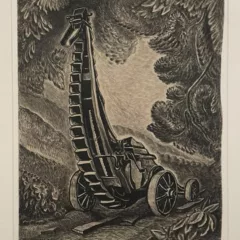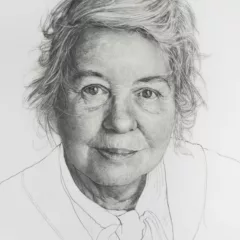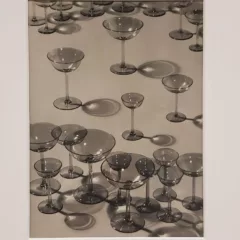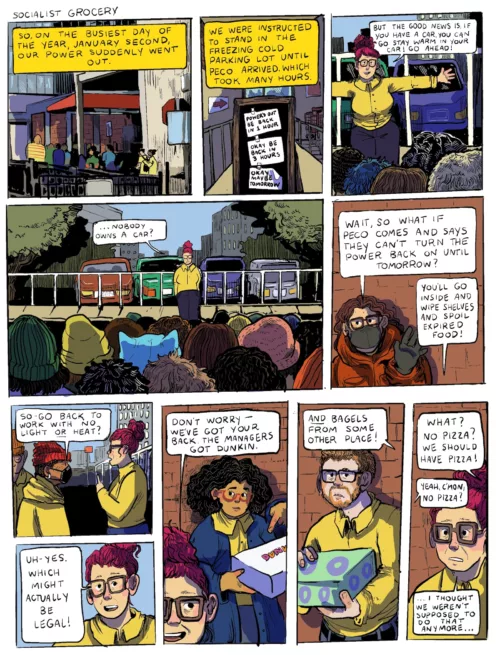(Andrea strolls the 2013 Art Basel Miami Beach art fair, and offers her picks from both new and familiar artists. — the artblog editors)
Each year, friends ask about my response to Art Basel Miami Beach (ABMB), and I reply that someone might be able to attend a fair for three and a half hours and offer an opinion, but I’m not that someone. I attend fairs to see what I can learn, preferably to see interesting work by artists I didn’t know, or new aspects of artists whose work I’ve seen before.
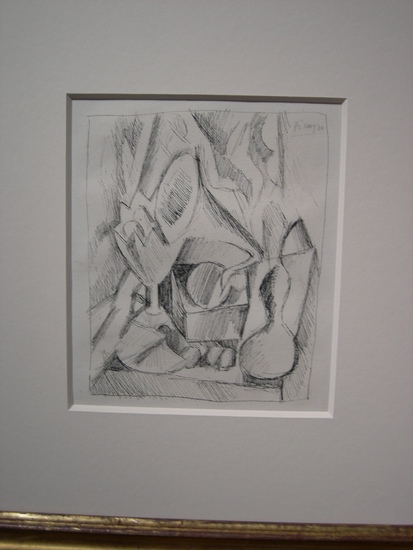
Another wonderful Picasso drawing, such as the little gem from 1908-09 at Richard Grey Gallery (Chicago), offers immense delight, but no new knowledge. Still, if I’d had the extra cash, I’d have taken it home.
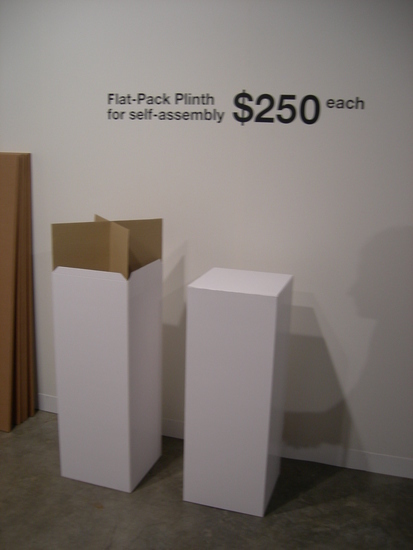
A lot of artists have been making art about the art world and its practices, but Peter Saville at Paul Stolper (London) did so with a light hand. His “Flat Pack Plinths” were clearly marked $250, but you had to read the label to learn that each is accompanied by a signed certificate. The gesture nicely acknowledges Seth Siegelaub’s development, in the 1960s, of certificates testifying to the authenticity of artwork that had no physical manifestation, or none at the time of sale. It also slyly comments on the idea that an object becomes art because of its presentation as such, with Saville offering one step toward that presentation.
The remainder of Saville’s work consisted of photographs of the labels museums use to indicate that a piece has been removed for study, conservation, or loan. It was all a bit of an insider joke, but the fair was full of insiders.
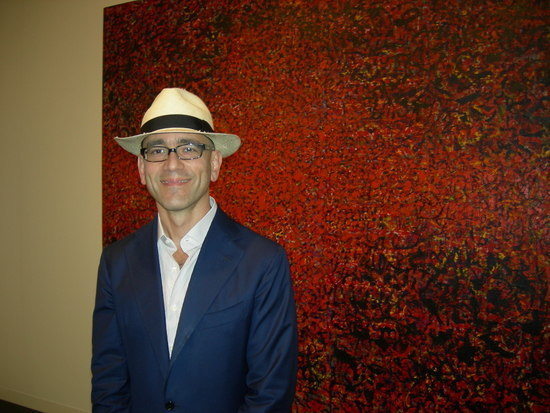
One such insider was Carlos Basualdo, curator of contemporary art at the Philadelphia Museum of Art. Basualdo said he was on museum business, but I was too discreet to ask what was on his shopping list. I spent some time walking around with Bill Robinson, from the Cleveland Museum of Art, who was hoping to strengthen the museum’s Surrealist collection, as well as trying to learn more about Latin American artists. Museum acquisitions take time–for colleagues, conservators, committees and board members to vet–so Robinson didn’t return with anything under his arm.
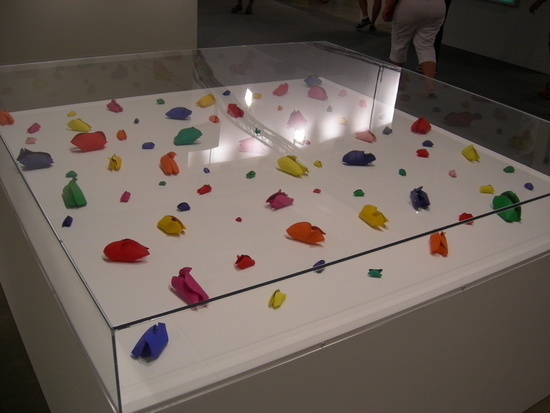
It’s always interesting to pick up on art world fashions. There was work by several well-established artists, not seen before at the fairs but appearing this year in more than one gallery. One was Hannah Wilke. Alison Jacques Gallery (London) had a large vitrine with a very polychrome group of small, folded and pinched forms–more or less the labial imagery Wilke often used–but these could also be read as flowers. Wilke’s descriptive label read … “womblike blossoms resembling Venus mounds,… Food from heaven, hence spiritual nourishment…”
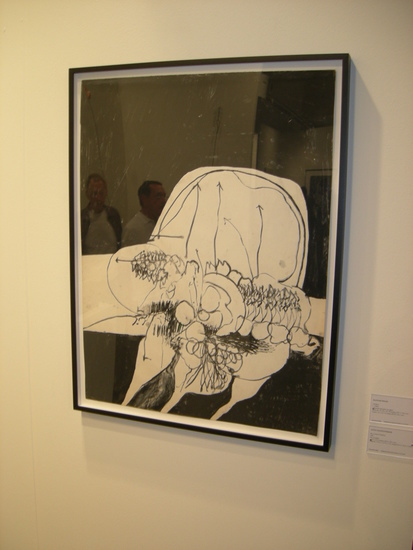
There was also a wonderful drawing that I didn’t recognize as by Wilke, at Andrea Rosen Gallery (New York), where I also saw Alina Szapocznikow’s work for the first time in a gallery.
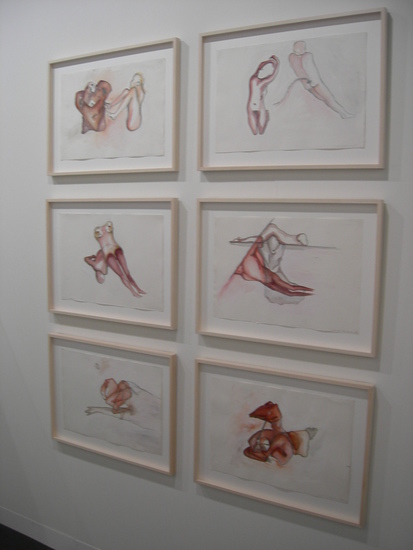
Birgit Jurgenssen also seems to have arrived on the U.S. market, since I saw her work in multiple places. I reviewed monographs on her and on Hannah Wilke on June 11, 2011. McCaffrey Fine Arts (New York) showed a complete wall of Jurgenssen watercolors.
Sheila Hicks is another artist, American but resident in Paris, whose work also appeared in several galleries–yet I’d never seen it offered previously. The ICA, Philadelphia had a monographic exhibition of her work, which I reviewed on April 12, 2011.
Barry McGee, a Philadelphian, was prominently on view at Ratio 3’s (San Francisco) booth, which was full of attractive and smartly-dressed men. Any event in Miami Beach is likely to include visitors in shorts, but some of the ABMB crowd had definitely dressed to attract attention, not to mention surprise. One man wore a linen suit, very traditional but for its color. A woman in a long dress covered with remarkable silver sequins was a bit of a mermaid out of water in the full, tropical sun of daylight.
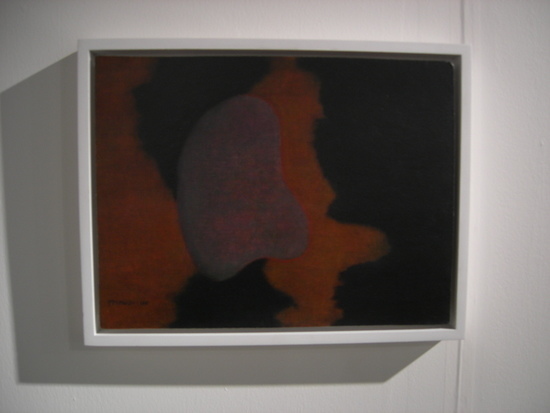
There were several works I’d have happily taken home, regardless of price or prior sale, to hang beside that small Picasso drawing. One was a luscious, small canvas by John McLaughlin at Franklin Parrasch Gallery (New York). McLaughlin is an established figure in L.A., but New York, which has only recently discovered California artists of the ’60s, hasn’t paid much attention to those who worked earlier. I saw a second McLaughlin painting at another dealer’s booth.
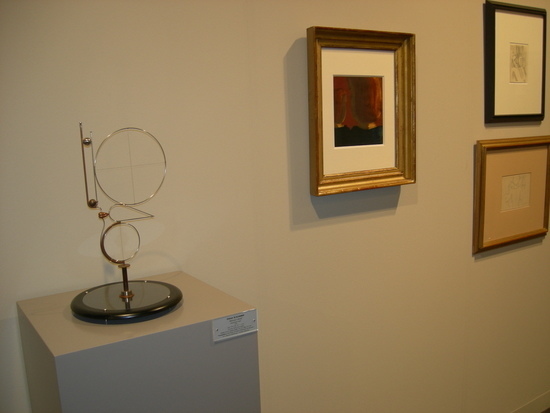
I’d be delighted to live with the tabletop sculpture by Oscar Schlemmer at Leandro Navarro (Madrid), which also had works by Schlemmer on paper. The gallery’s director said they had been working with the artist’s estate.
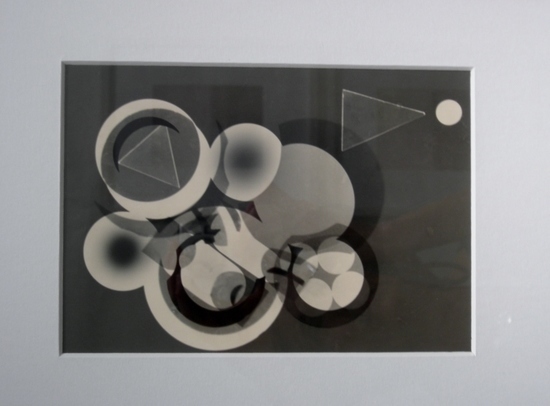

I’d also take a photogram by Otto Steinert at Galerie Kicken Berlin. Steinert, a founder of the fotoform group, was the one find whose work I hadn’t known. And is it a cheap shot that I also coveted a small pencil drawing by Kazimir Malevich that I saw at Annely Juda Fine Art (London)?


